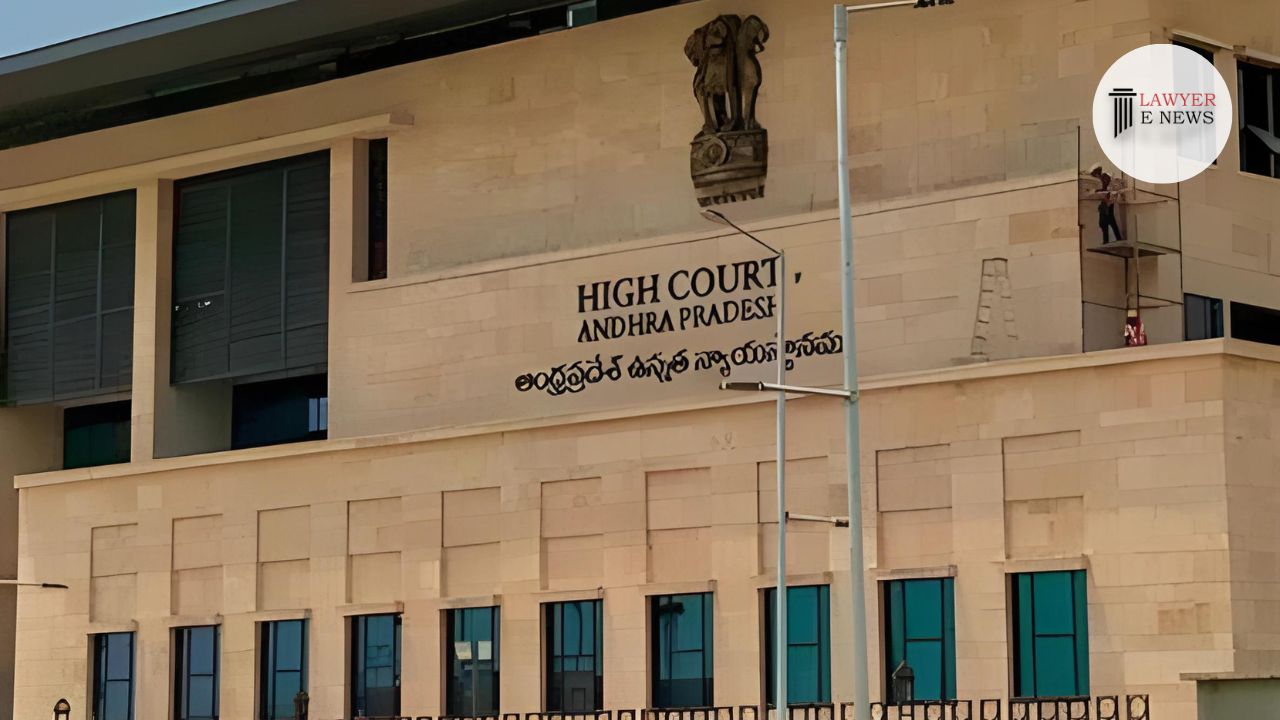-
by Admin
15 February 2026 5:35 AM



High Court underscores the necessity of statutory appeals and highlights the use of fabricated evidence in dismissing Chennuboyina Chittibabu’s petition. The Andhra Pradesh High Court has dismissed a writ petition filed by Chennuboyina Chittibabu challenging an assessment order levying service tax, interest, and penalties. The court, comprising Justices Ravi Nath Tilhari and Kiranmayee Mandava, ruled that the petitioner failed to utilize the available statutory appeal process and found no jurisdictional errors in the lower authority’s decision.
The petitioner, Chennuboyina Chittibabu, a sub-contractor engaged in works contracts, challenged an assessment order dated October 26, 2023. The Assistant Commissioner of Central Tax and Central Excise levied a service tax amounting to Rs. 6,46,317 for the financial years 2016-17 and 2017-18, along with corresponding interest and penalties under various sections of the Finance Act, 1994. The petitioner contended that the services provided were exempt from service tax under Notification No. 25/2012-Service Tax dated June 20, 2012.
The High Court emphasized the availability of a statutory appeal to the Commissioner (Appeals) and criticized the petitioner for bypassing this remedy. Justice Kiranmayee Mandava noted, “The petitioner approached this Court without availing the statutory remedy of appeal, which is the appropriate forum to contest the assessment order.”
The court scrutinized the evidence provided by the petitioner, particularly the alleged agreement with the main contractor, D. Purna Chandra Rao. The bench pointed out inconsistencies, noting that the document mentioned “NTR District,” a designation that did not exist in 2016. The court observed, “Prima facie, the document appears to have been invented for the purpose of this writ petition and cannot be relied upon.”
The court rejected the petitioner’s claim of a violation of natural justice, stating that multiple opportunities were given to present supporting documents, which the petitioner failed to provide. The judgment stated, “The assessing authority considered the objections raised by the petitioner and passed the order based on the available material.”
The bench concluded that the order passed by the Assistant Commissioner did not exceed jurisdiction and adhered to due process. It reinforced that factual disputes, such as whether the petitioner acted as a contractor or sub-contractor, should be resolved through the statutory appeal mechanism rather than a writ petition.
Justice Kiranmayee Mandava remarked, “The remedy of appeal is more appropriate for the petitioner to establish his case with adequate material support. The writ jurisdiction is not the proper forum for such fact-intensive disputes.”
The Andhra Pradesh High Court’s decision to dismiss the writ petition underscores the importance of utilizing statutory remedies before approaching higher judicial forums. By affirming the lower authority’s assessment and emphasizing procedural adherence, the judgment reinforces the structured legal pathways available for disputing tax assessments. This ruling is expected to guide future litigants in similar tax-related disputes, ensuring that jurisdictional protocols are respected.
Date of Decision: July 30, 2024
Chennuboyina Chittibabu vs. Union of India and Others
